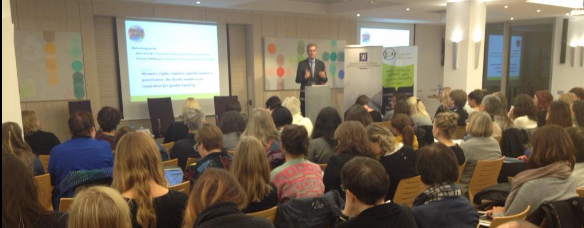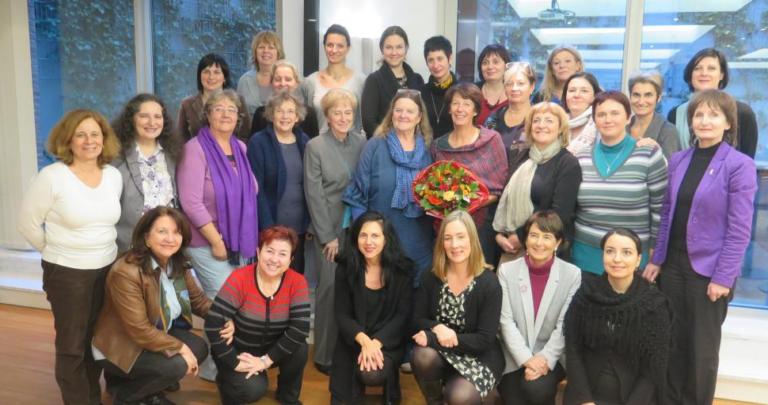[Nicosia, 13 September 2011] EWL member organisation, the Mediterranean Institute of Gender Studies (MIGS), welcomes the recently published report of the Group of Experts on Action against Trafficking in Human Beings (GRETA) that concerns the implementation of the Council of Europe Convention on Action against Trafficking in Human Beings by Cyprus. GRETA is the monitoring mechanism to supervise the implementation of states’ obligations under the Convention that has been signed and ratified by Cyprus and entered into force on 1 February 2008.
It is clear from the report that there are still serious gaps in Cyprus in relation to prevention, protection of victims of trafficking, as well as prosecution of traffickers. Furthermore, according to the report, there are a number of discrepancies in basic legal provisions. GRETA strongly recommends that the Cyprus authorities conduct a thorough assessment of the effectiveness of the Cyprus Trafficking Law citing its limited application in practice and the failure to secure a single conviction for trafficking.
The report stresses that the Cypriot authorities have not yet undertaken any measures to discourage demand for the services of trafficked persons, which is critical in combating trafficking, and recommends that such measures be adopted in relation to the most common forms of trafficking in Cyprus. They also stress the importance of proactive investigation of potential cases of trafficking in sectors such as entertainment, tourism, agriculture and domestic work, and recommend the close monitoring of the application of the new visa regimes for performing artists.
In relation to the protection of victims, GRETA expresses its concerns for the protection of victims and specifically for the need to protect victims’ private life and safety during criminal proceedings. It also considers that the stay of victims in Cyprus should be facilitated so that they can testify and exercise their rights to compensation and redress.
Among the most important findings of the report is that the legal definition of “victims” in the Cyprus legislation is not in line with the definition in the Convention, which may result in negative implications for the identification of victims and their access to assistance and protection measures.
Above all, GRETA emphasizes that the human rights based and victim-centered approach that underpins the Convention is not fully reflected and applied in the Cypriot system to combat trafficking in persons, and calls on the Cyprus Government to take immediate measures to ensure this approach is put into practice.
Despite these findings, with surprise the Institute observes that the Office of the Attorney General, in its comments to the final report, seems to have a negative attitude towards the suggestions of GRETA dismissing the comments of the Expert Group arguing that the legal framework of Cyprus is complete and satisfactory. Thus, the Office of the Attorney General ignores our obligations to the Council of Europe Convention on Action against Trafficking in Persons.
The Institute calls on the Cyprus Government and the Office of the Attorney General to comply with the recommendations of GRETA regarding the gaps in the Convention’s implementation, and harmonise our legal framework based on its legally binding provisions.
The full report of GRETA is available here: http://www.coe.int/t/dghl/monitoring/trafficking/Docs/Reports/GRETA_2011_8_FGR_CYP_en_final.pdf


